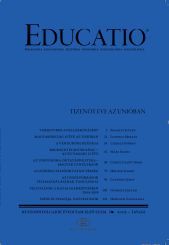A svéd tanügyigazgatás változásai: egy radikális modellváltás
Shifts in Swedish Education Administration: A Radical Change of Models
Author(s): András SemjénSubject(s): State/Government and Education
Published by: Akadémiai Kiadó
Keywords: education administration; NPM; decentralisation; marketization; vouchers
Summary/Abstract: Sweden used to have one of the most centralised education administrations in Europe, and had good results with it concerning academic performance, educational attainment, employment and economic growth. However, the centralised system was criticised for being inefficient and expensive, and not successful in eliminating social inequalities. At the beginning of the nineties, in accordance with the then prevailing neoliberal trends, there came a radical reform. All responsibility for basic, secondary and upper secondary education was given to municipalities, and the regional education boards lost their role in transmitting governmental intentions. There was also a gradual reform of school finance, allowing municipalities to allocate government grants freely. Parents got the right to choose among schools freely. Education remained free for students not only in the public sector, but in the growing independent school sector as well. Free (or independent) schools became eligible for public funding using a voucher scheme. Although the successive governments wanted to maintain equal opportunities, the marketization of education is often criticised for the increasing signs of segregation and deteriorating student performance.
Journal: Educatio
- Issue Year: 28/2019
- Issue No: 2
- Page Range: 328-342
- Page Count: 15
- Language: Hungarian

